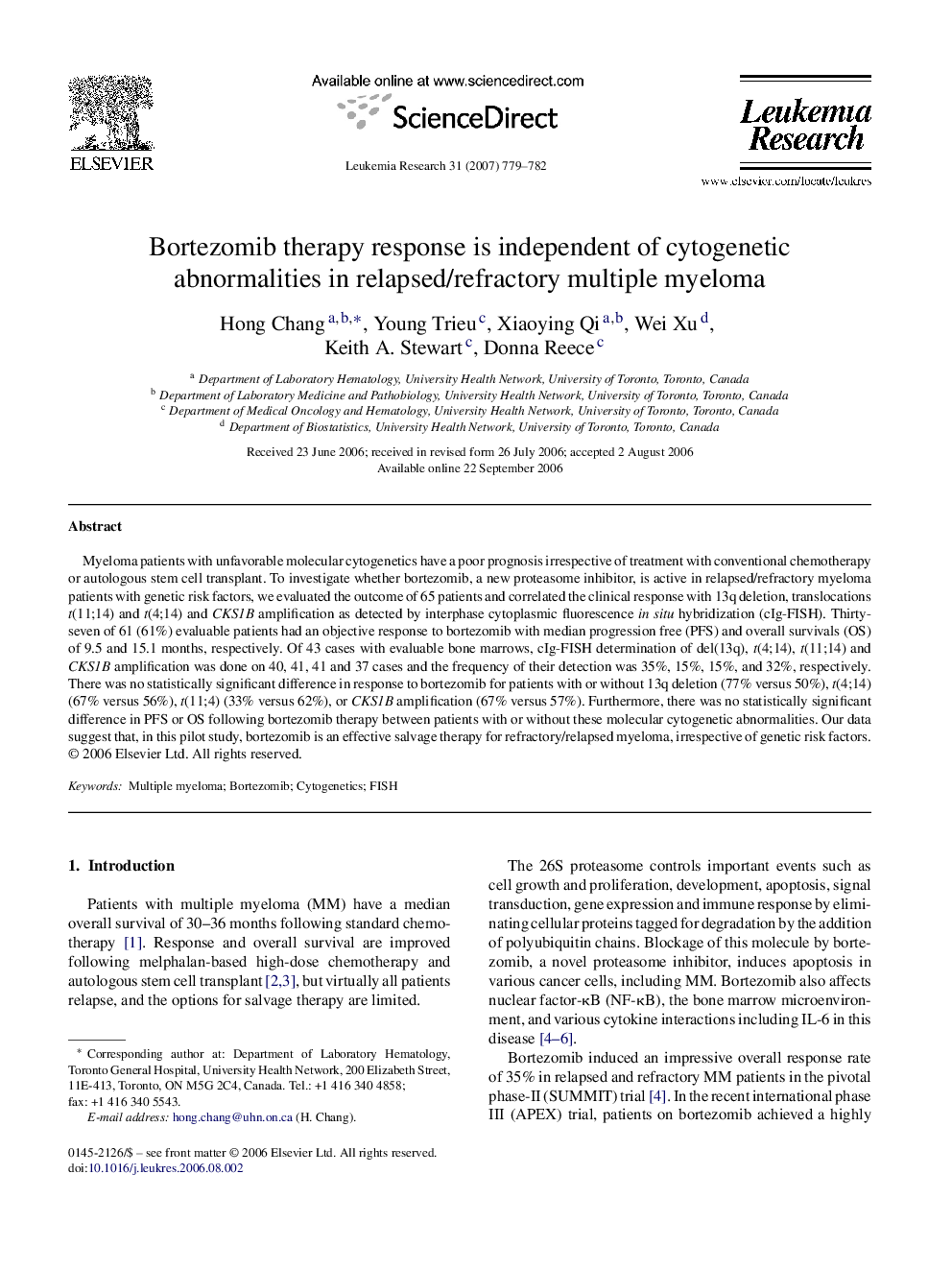| Article ID | Journal | Published Year | Pages | File Type |
|---|---|---|---|---|
| 2139403 | Leukemia Research | 2007 | 4 Pages |
Myeloma patients with unfavorable molecular cytogenetics have a poor prognosis irrespective of treatment with conventional chemotherapy or autologous stem cell transplant. To investigate whether bortezomib, a new proteasome inhibitor, is active in relapsed/refractory myeloma patients with genetic risk factors, we evaluated the outcome of 65 patients and correlated the clinical response with 13q deletion, translocations t(11;14) and t(4;14) and CKS1B amplification as detected by interphase cytoplasmic fluorescence in situ hybridization (cIg-FISH). Thirty-seven of 61 (61%) evaluable patients had an objective response to bortezomib with median progression free (PFS) and overall survivals (OS) of 9.5 and 15.1 months, respectively. Of 43 cases with evaluable bone marrows, cIg-FISH determination of del(13q), t(4;14), t(11;14) and CKS1B amplification was done on 40, 41, 41 and 37 cases and the frequency of their detection was 35%, 15%, 15%, and 32%, respectively. There was no statistically significant difference in response to bortezomib for patients with or without 13q deletion (77% versus 50%), t(4;14) (67% versus 56%), t(11;4) (33% versus 62%), or CKS1B amplification (67% versus 57%). Furthermore, there was no statistically significant difference in PFS or OS following bortezomib therapy between patients with or without these molecular cytogenetic abnormalities. Our data suggest that, in this pilot study, bortezomib is an effective salvage therapy for refractory/relapsed myeloma, irrespective of genetic risk factors.
